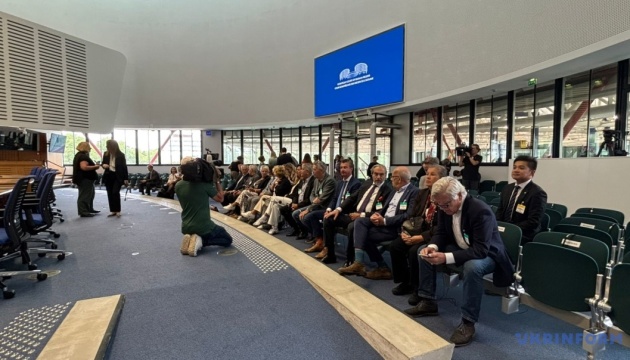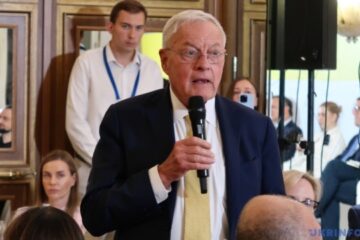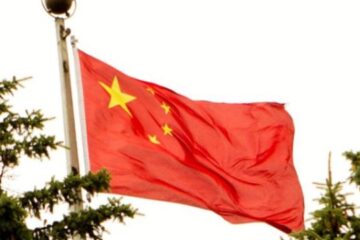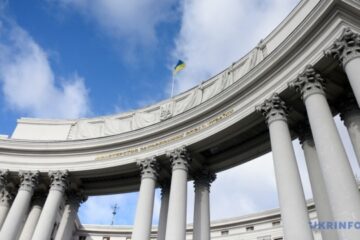The inter-state case “Ukraine and the Netherlands v. Russia” has become the largest in the history of the European Court of Human Rights (ECHR), covering more than a decade of Russia’s violations of international law.
The Court’s ruling on the merits, totaling 497 pages, was announced in Strasbourg on July 9, 2025. The ECHR found Russia responsible, under the European Convention on Human Rights, for large-scale and egregious human rights violations in Ukraine since 2014, as well as for the downing of Malaysia Airlines flight MH17. The judgment was delivered by ECHR President Mattias Guyomar, and for the first time, a live broadcast of the ruling in an inter-state case was organized.
[embedded content]
As has been its custom, Russia did not appear before the Court, though it had been duly notified, the Court’s President said.
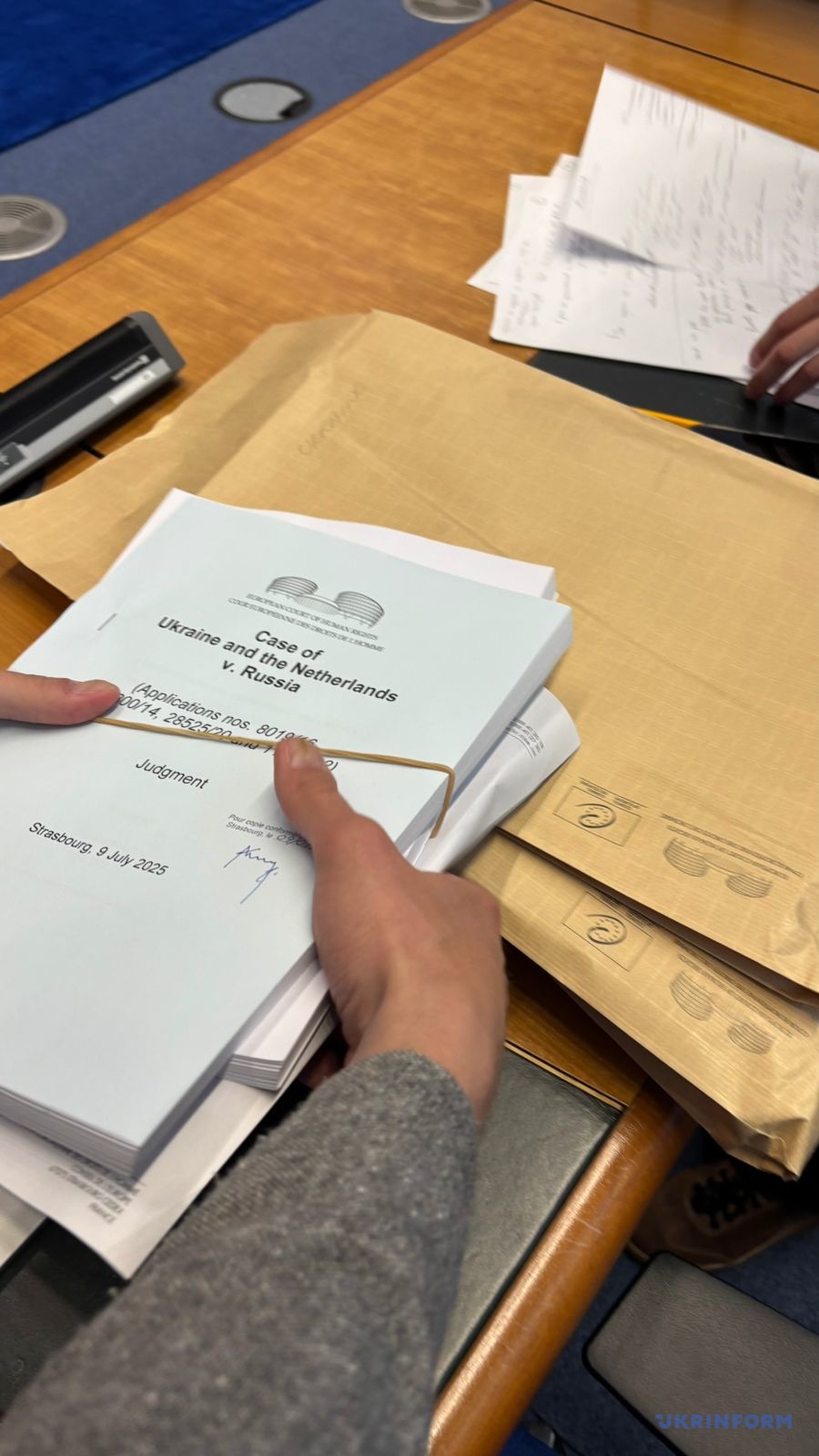
It is worth noting that the “Ukraine and the Netherlands v. Russia” case (Applications Nos. 8019/16, 43800/14, 28525/20, and 11055/22) consolidates four inter-state applications. In 2020, three major cases were joined:
- “Ukraine v. Russia” (No. 8019/16), concerning widespread and systematic human rights abuses in the temporarily occupied territories of the Donetsk and Luhansk regions;
- “Ukraine v. Russia” (No. 43800/14), regarding the abduction and attempted unlawful transfer of orphans from the Donetsk and Luhansk regions to Russian territory in 2014;
- “The Netherlands v. Russia” (No. 28525/20), concerning the downing of Malaysia Airlines flight MH17.
In January 2023, the ECHR Grand Chamber ruled on the admissibility of the joint inter-state case “Ukraine and the Netherlands v. Russia” concerning the three previously submitted applications (regarding eastern Ukraine, the abduction of orphaned children, and the downing of flight MH17).
Following the start of the full-scale invasion, Ukraine submitted a new application to the ECHR. On February 17, 2023, the Court informed the Ukrainian government that this application would be joined with the existing inter-state case. Thus, the fourth component of the “Ukraine and the Netherlands v. Russia” case became the case “Ukraine v. Russia” (application No. 11055/22) concerning Russia’s full-scale invasion of Ukraine.
These developments highlight the emotional responses of the Ukrainian and Dutch representatives following their victory at the ECHR, as well as the implications of the Court’s decision for Russia.
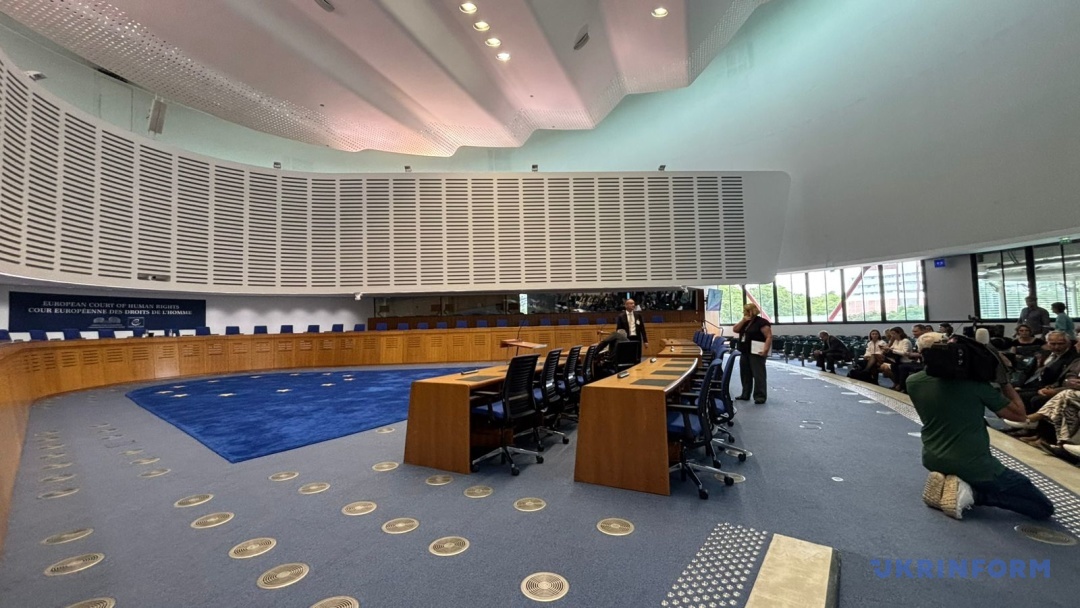
HISTORIC RULING: HOW THE JUDGMENT WAS ANNOUNCED
Moments before the judgment was announced, the courtroom filled with the Ukrainian and Dutch legal teams, along with relatives of MH17 victims. The courtroom was symbolically divided into three sections: representatives of the Netherlands, Ukraine, and an empty bench for the absent respondent — the Russian Federation.
After the loud bell and the announcement “La cour,” the courtroom fell silent. All those present rose to their feet and, having demonstrated their respect for the Court, sat down again.
ECHR President Mattias Guyomar said that he was declaring open the hearing on the delivery of the judgment of the European Court of Human Rights in the case of Ukraine and the Netherlands v. Russia.
He also named the representatives of Ukraine and the Netherlands present in the courtroom and noted that Russia had neither informed the Court in advance of any representatives nor appeared at the hearing.
For nearly an hour, Guyomar read the Court’s decision, pausing from time to time to take a sip of water.
According to the judgment, the European Court of Human Rights has unanimously ruled that, in connection with the conflict in Ukraine from May 11, 2014 — when the fighting began — until September 16, 2022 — when Russia ceased to be a party to the European Convention on Human Rights — there were systematic violations of:
- Article 2 (right to life),
- Article 3 (prohibition of torture and inhuman or degrading treatment),
- Article 4 §2 (prohibition of forced labor),
- Article 5 (right to liberty and security),
- Article 8 (right to respect for private and family life),
- Article 9 (freedom of thought, conscience, and religion),
- Article 10 (freedom of expression),
- Article 11 (freedom of assembly and association),
- Article 13 (right to an effective remedy), and
- Article 14 (prohibition of discrimination) of the European Convention,
- as well as Articles 1 (protection of property) and 2 (right to education) of Protocol No. 1 to the Convention.
Thus, in summary of the judgment on the merits — which spans 497 pages — the Court established that Russia had planned and carried out attacks with the clear aim of establishing control over Ukrainian territory, infrastructure, and population. The large-scale violations — including killings, torture, violence, deportations, and destruction of property — were systematic and took place with the tacit approval of the Russian leadership. The rights of civilians and prisoners of war were violated in contravention of numerous provisions of the Convention. The forced transfer of Ukrainian children to Russia and their subsequent adoption there constitutes a violation of the fundamental rights and dignity of the child.
In the case of flight MH17, the Court confirmed that the plane was shot down over territory controlled by Russia. The Russian authorities’ refusal to cooperate with the international investigation, as well as their disinformation campaign, were deemed an additional crime — a crime against truth and against the victims.
The Court also emphasized that the nature and scale of violence in Ukraine, along with Russia’s sinister statements regarding Ukraine’s right to exist, have threatened peace in Europe. The Court stated that none of the conflicts previously brought before the Court had triggered such near-unanimous condemnation of the flagrant disregard by the respondent state for the foundational norms of the international legal order established after the Second World War.
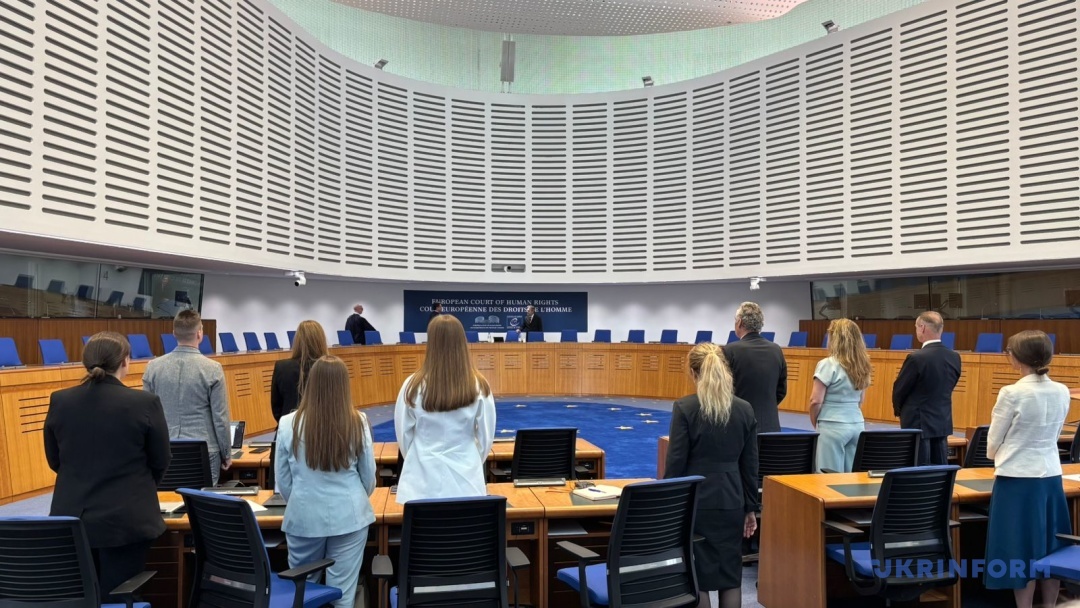
ECHR RULING MAY BE USEFUL IN SPECIAL TRIBUNAL AGAINST RUSSIA
Upon hearing the ECHR ruling, the representatives of Ukraine and the Netherlands could barely hold back tears. Their faces reflected relief, faith in justice, and the realization that an important step toward achieving accountability had been taken.
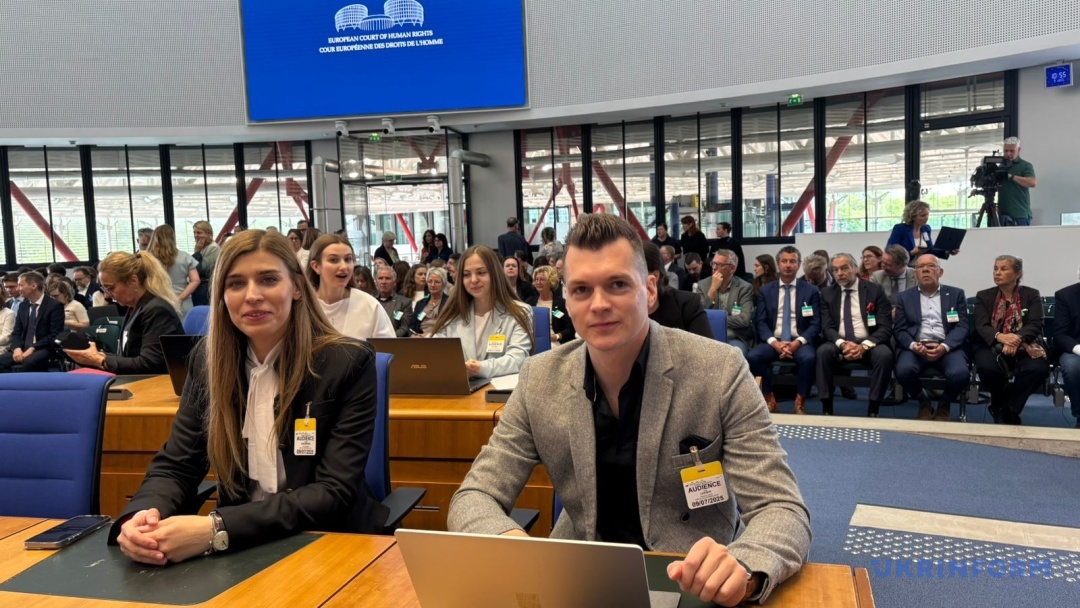
Margarita Sokorenko
Margarita Sokorenko, Ukraine’s Agent at the European Court of Human Rights, said that the ruling in the interstate case “Ukraine and the Netherlands v. Russia” is extremely important, as Ukraine will be able to use it in proceedings of the Special Tribunal for the Crime of Aggression against Ukraine.
“Regarding the Special Tribunal, in my opinion, this decision will also be very useful in the work of the Special Tribunal for the Crime of Aggression committed by the Russian Federation against Ukraine. The clear findings of the ECHR ruling should undoubtedly serve as a foundation for the work and further consideration of relevant proceedings by the Tribunal. I believe this will be the case going forward,” Sokorenko said.
She stressed that the ECHR decision contains a significant number of findings concerning the context of the Russian Federation’s armed aggression against Ukraine. In particular, the Court determined that Russia’s actions were aimed at destroying the state of Ukraine as such.
“The Court clearly stated that in 2014 Russia pursued a highly coordinated, carefully planned policy and strategy to seize [Ukrainian] territory, attack settlements and civilian infrastructure. It also employed a strategy of intimidation of the population (especially during the full-scale invasion in 2022). Moreover, the ECHR decision notes that Russia’s rhetoric, behavior, and policy explicitly declare the goal of destroying Ukraine as a subject of international law and as an independent state,” Sokorenko said.
According to her, the clear conclusions enshrined in this ruling should undoubtedly become a foundation for the Tribunal’s future work and proceedings related to the crime of aggression.
The ECHR also postponed the question of just satisfaction in its ruling. Issues related to redress for violations and potential compensation to victims will be addressed within the framework of the compensation mechanism currently being created by Ukraine as part of the international Register of Damage.
“At this stage, the ECHR has postponed the matter of just satisfaction. In other words, the issue of potential compensation or other remedies for the violations identified in today’s ruling of the European Court of Human Rights,” Sokorenko said.
She stressed that Russia has every right to cooperate with the ECHR but, since 2022, has refused to engage in communication either with the Council of Europe or with the ECHR itself.
“Because Russia does not cooperate with either the ECHR or the Council of Europe, the European Court in today’s ruling also indicated that the issue of just satisfaction will henceforth be addressed within the compensation mechanism currently being created by Ukraine. That is, the stage of creating a compensation commission is ongoing, the Register of Damage is already functioning and is gradually being populated to enable a mechanism for potential future payments to victims of Russian armed aggression,” Sokorenko said.
She also noted that the ECHR ruling marks a new stage in proceedings against Russia in international institutions. In particular, the International Criminal Court (ICC) will now be able to investigate Russian war crimes more thoroughly using this decision, and diplomats will be able to use it as an argument in favor of imposing further sanctions against the Russian Federation.
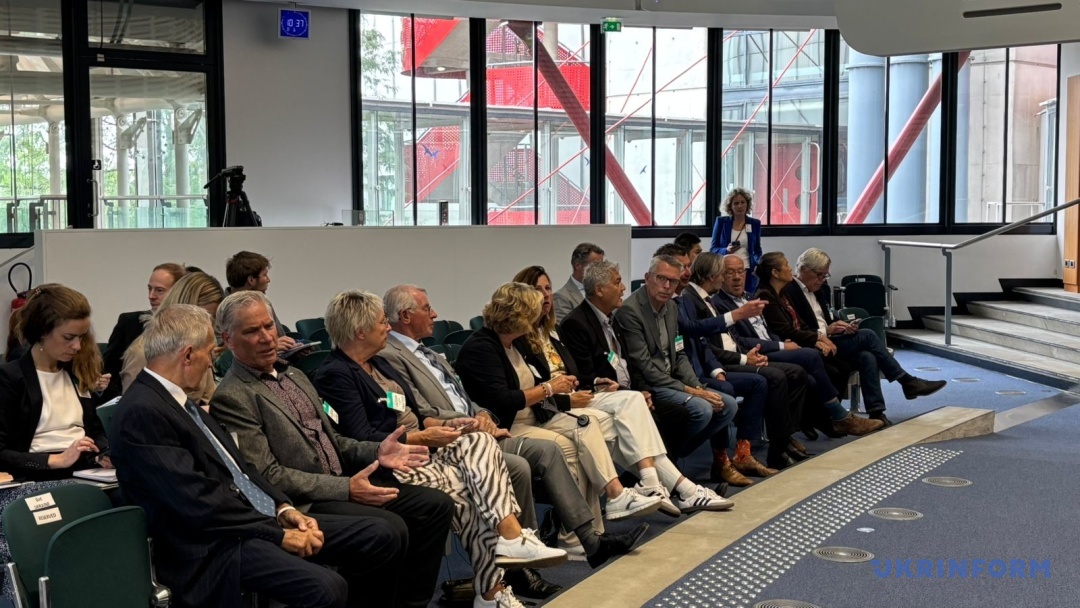
A CRUCIAL STEP TOWARD JUSTICE FOR UKRAINE AND THE NETHERLANDS
The interstate case “Ukraine and the Netherlands v. Russia” concerned the conflict that began in eastern Ukraine in 2014 after pro-Russian armed groups entered the Donetsk and Luhansk regions and escalated following Russia’s full-scale invasion of Ukraine on February 24, 2022. It also concerned the downing of Malaysia Airlines Flight MH17, which was shot down by the Russian military over the temporarily occupied territory of the Donetsk region on July 17, 2014. On board the aircraft were 283 passengers and 15 crew members — none survived.
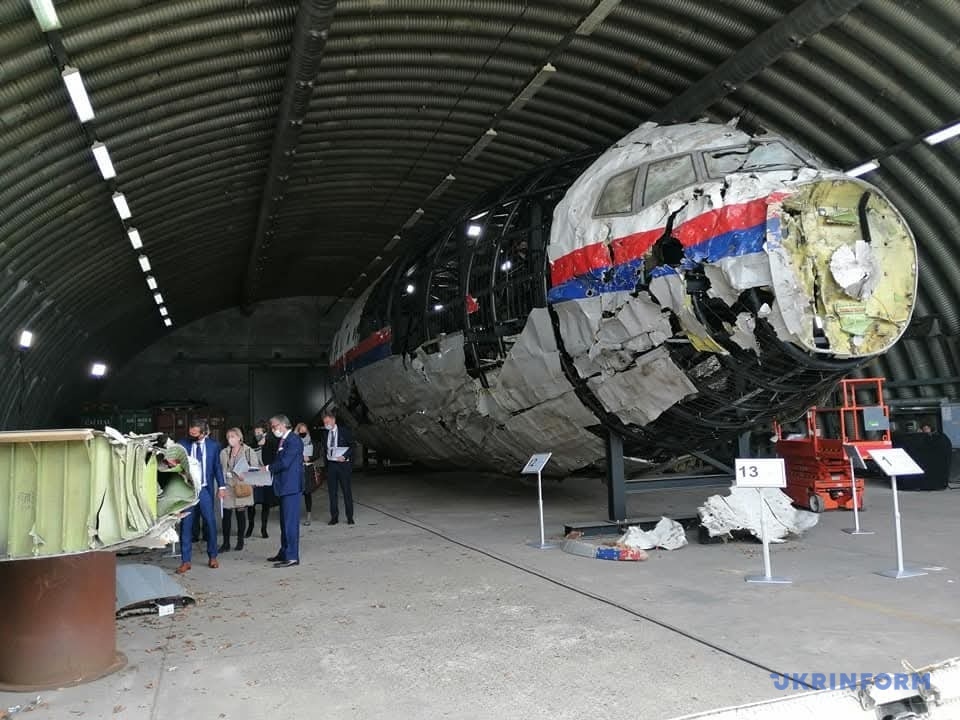
Photo from the Ukrinform archive
Over 11 years of legal proceedings, Ukraine documented numerous human rights violations committed by Russia. The Netherlands focused on Russia’s breach of the Convention through the downing of Flight MH17, as the majority of passengers were Dutch citizens.
Dutch Prime Minister Dick Schoof called the ECHR ruling an important step toward justice.
“The judgment of the European Court of Human Rights is an important step on the road to justice. The Court held that Russia is responsible for the downing of flight MH17 and for the deaths of everyone on board, including 196 Dutch nationals. My thoughts today are with the next of kin, who for more than ten years have lived with the pain of losing loved ones,” he wrote on X.
Dutch Foreign Minister Caspar Veldkamp, in turn, stated that the ECHR decision is absolutely clear, also stressing that Russia is responsible for the downing of Flight MH17 and for the deaths of all those on board.
“This confirms what we have known and felt all along, and is an important step on the road to justice,” he said.
Veldkamp also noted that Russia “is responsible for additional suffering caused to the next of kin, due to its continued denial of any involvement and lack of cooperation.” “Nothing can take away the grief and suffering, but I hope that this outcome brings a sense of justice and acknowledgement,” he added.
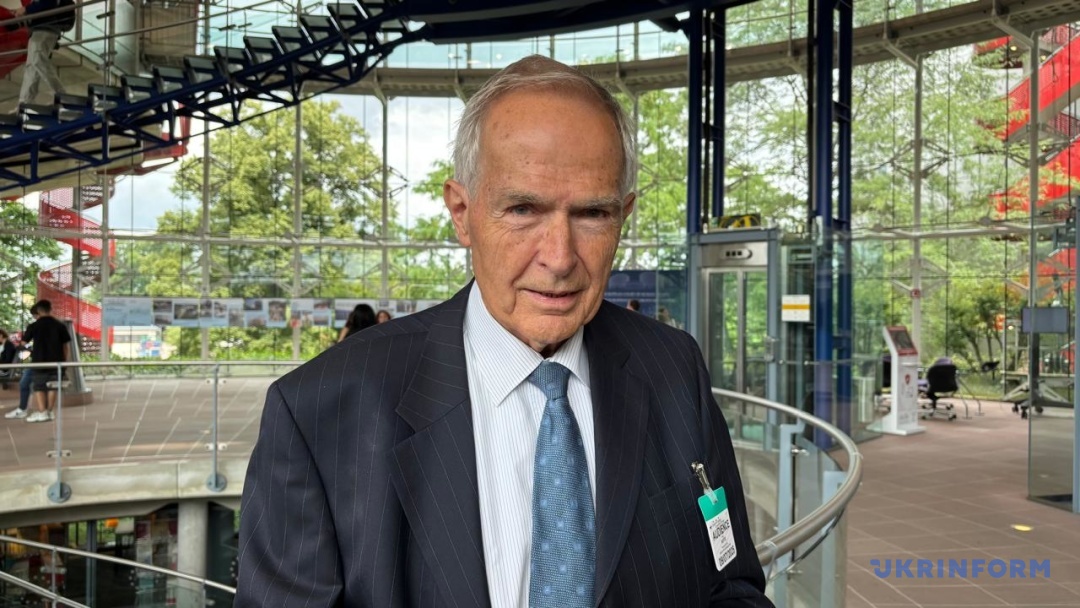
Anton Kotte
Dutch MH17 Air Disaster Foundation Treasurer Anton Kotte, who lost his eldest son, daughter-in-law, and six-year-old grandson in the crash, called the ECHR ruling historic for both Ukraine and the Netherlands.
“This is a very clear decision. All elements of the Convention were taken into account — it’s very unexpected for me. After all, the decision was made by 28 judges, and they were unanimous. That means a lot to us. I have always said that we, the relatives of the victims, must understand: our duty to those we lost is to see the procedure through to the end and to accept its conclusion. And this decision helps us do that. Our mission is to achieve accountability. This is a historic day. For the Netherlands, it is extremely important. So many victims, so much loss, so much pain. But today there is a court ruling in the Netherlands, there is today’s decision, there is the ICAO ruling — all pointing in the same direction. And that gives us the opportunity to tell our story to the world. To warn about the Russian Federation,” he said in an exclusive comment to Ukrinform.
“If we recall the court case on MH17 in the Netherlands concerning four individuals, one of those convicted by the Dutch court — Girkin — was imprisoned by Russia itself. The same Girkin. And the question is: will he ever be released, is he still alive, or will he meet the same fate as Navalny? Because he was killed. That says a lot about the state of justice in Russia,” he added.
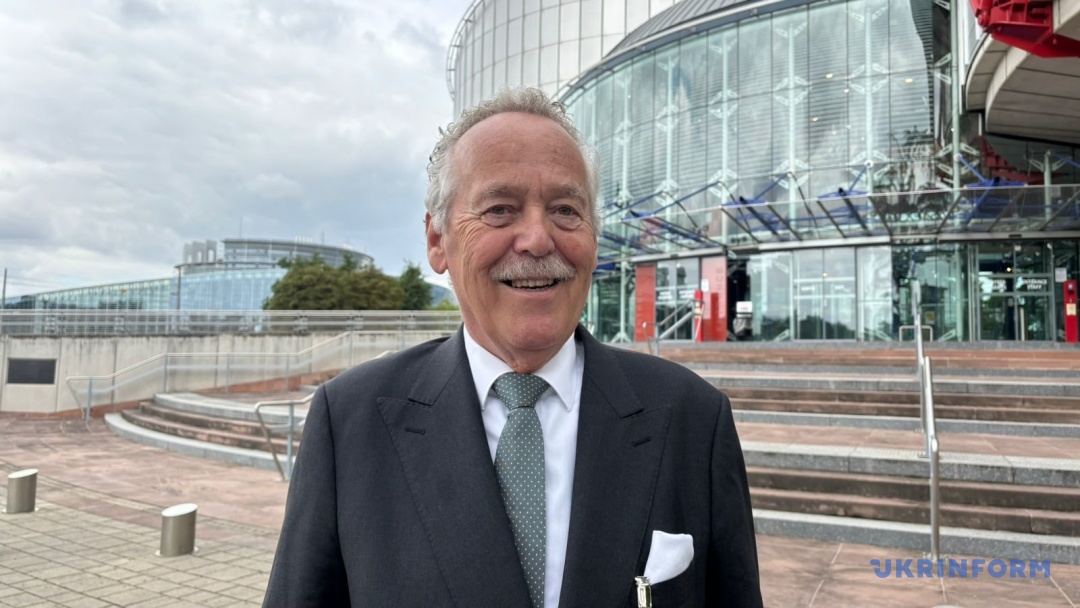
Piet Ploeg
Piet Ploeg, a relative of three MH17 victims and a board member of the MH17 Air Disaster Foundation, said: “The decision was unanimous. And that is even more than we could have hoped for. It was a very clear ruling — not only concerning MH17, but also regarding other crimes committed by the Russians in Ukraine. So yes, this is a very important day.”
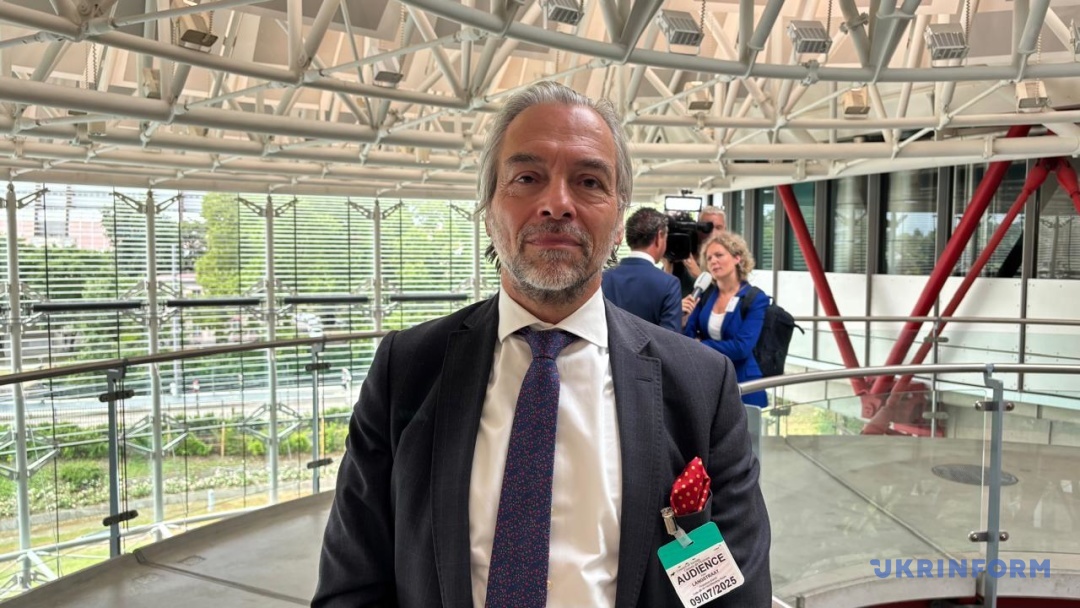
Peter Langstraat
Lawyer Peter Langstraat, who also represented the relatives of the MH17 victims in the Netherlands, called the ECHR ruling strong and just in a comment to Ukrinform. However, in his opinion, victims will only be able to receive reparations after Putin leaves power.
“I’m very pleased with the decision because the Court recognized that the right to life was violated — this is Article 2 of the Convention — and we expected that. Article 3 concerns inhuman or degrading treatment and torture. That was less certain, but the Court also found that this article had been violated. Such conclusions require a very high standard of proof. And the fact that the Court reached this decision unanimously is very telling,” the lawyer said.
According to him, the ECHR ruling in the case “Ukraine and the Netherlands v. Russia” will be important for compensation, i.e., just satisfaction, but it will require waiting.
“As long as Mr. Putin is in power, that will not be paid. But again, look at the Lockerbie case [the 1988 bombing of the plane over the Scottish town of Lockerbie, for which Libya agreed to take responsibility], where compensation was paid after 20 years. We are now dealing for 11 years with this case. So, it is unclear what is going to happen now,” Langstraat said.
In his opinion, next, the Court may request additional information from all parties — Ukraine and the Netherlands — regarding satisfaction.
“The Court will say, ‘Please specify exactly what you are seeking in the interstate case in terms of just satisfaction.’ It seems that this will be the next stage — a new ruling or a request from the Court. So this is truly a huge victory, both for the relatives of the victims and for the Netherlands. As for Russia’s reaction — they may say something in their media. Most likely, Lavrov will call it nonsense or something along those lines. That’s the standard Russian response,” he noted.
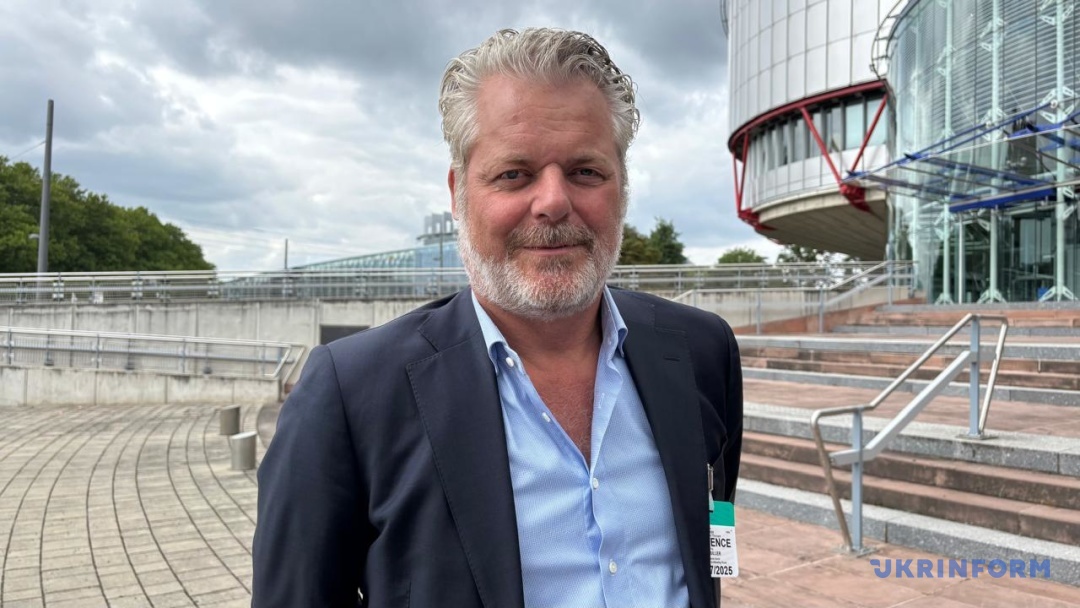
Flip Schüller
His colleague, Dutch lawyer Flip Schüller, highlighted one of the most important aspects of the ruling.
“This is likely one of the historic moments in the ruling — Russia was found guilty not only of violating the right to life, due to the deaths of innocent people, but also of failing to investigate, showing indifference, and deliberately spreading disinformation. The Court considered all of this a violation of Article 3 — meaning it was degrading and amounted to inhuman treatment of the victims’ families,” he said.
The lawyer also noted that Article 3 of the European Convention on Human Rights is one of its core provisions and allows for no exceptions — even in wartime or during a state of emergency. According to him, the Court has clearly demonstrated that Russia’s actions crossed the severity threshold defined by the Convention.
“This marks a new phase from a legal perspective, and it’s very important — not just for the Netherlands’ victims, but for all victims. The Court recognized that Russia’s indifference is itself a breach of its obligations,” Schüller said, adding that the ruling matters not only for the Netherlands, but also for Ukraine and global justice.
The next difficult question, in his opinion, will be determining just satisfaction.
“That will be extremely difficult. And to be honest — right now, we simply don’t know how it will work. The entire Convention is based on the assumption that state parties cooperate with the Court. But since Russia is now outside that mechanism, some might despair and ask: what’s the practical point? But there’s another way to look at it — we must not allow this to become normalized or accepted. We cannot tolerate it. In the future, when the war ends and things begin to normalize, the issue of reparations will inevitably arise. This ruling will then become a key milestone on that path,” the lawyer said in a comment to Ukrinform.
Thus, the ECHR ruling of July 9, 2025, is not only a legal recognition of Russia’s aggression but also a strong signal. It strengthens international mechanisms to hold Russia accountable, supports the relatives of the MH17 victims, and clearly outlines jurisdictional boundaries for protecting human rights in the current conflict.
Iryna Drabok, The Hague
Photo credit: Lidiia Taran

